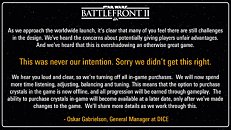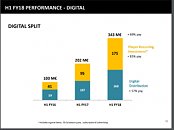Obsidian Says "The Outer Worlds" Will be Free of Microtransactions, Releases Screenshots
Obsidian Entertainment, which have recently announced their latest videogame in the form of "The Outer Worlds", have now come out of woodwork to assuage some fears gamers might have. In an increasingly microtransaction-ridden digital world, and perhaps not helped by the Microsoft acquisition that Obsidian Entertainment has undergone, fears of microtransactions being added to the game that's expected to be a Fallout spiritual successor naturally grew. Timothy Cain, original creator of Fallout, in an interview with Gamestar, put those thoughts to rest. He said, in no uncertain terms that "There are no microtransactions in the game. You buy it once and then enjoy it forever."
New screenshots and details for the game have also been made known, including an interesting "Flaw" system, which pairs with the now well-known "Perk" to give players debuffs for some of their "weak traits" during gameplay in exchange for perk points. Companions with their own motivations and storylines, choice-driven gameplay with some emergent dynamics, are all part of the recipe. Check out the screenshots and Obsidian's own explanations of some of the games' features after the break.
New screenshots and details for the game have also been made known, including an interesting "Flaw" system, which pairs with the now well-known "Perk" to give players debuffs for some of their "weak traits" during gameplay in exchange for perk points. Companions with their own motivations and storylines, choice-driven gameplay with some emergent dynamics, are all part of the recipe. Check out the screenshots and Obsidian's own explanations of some of the games' features after the break.



























